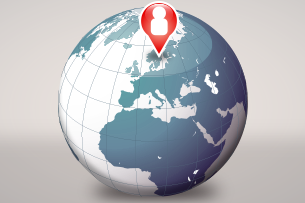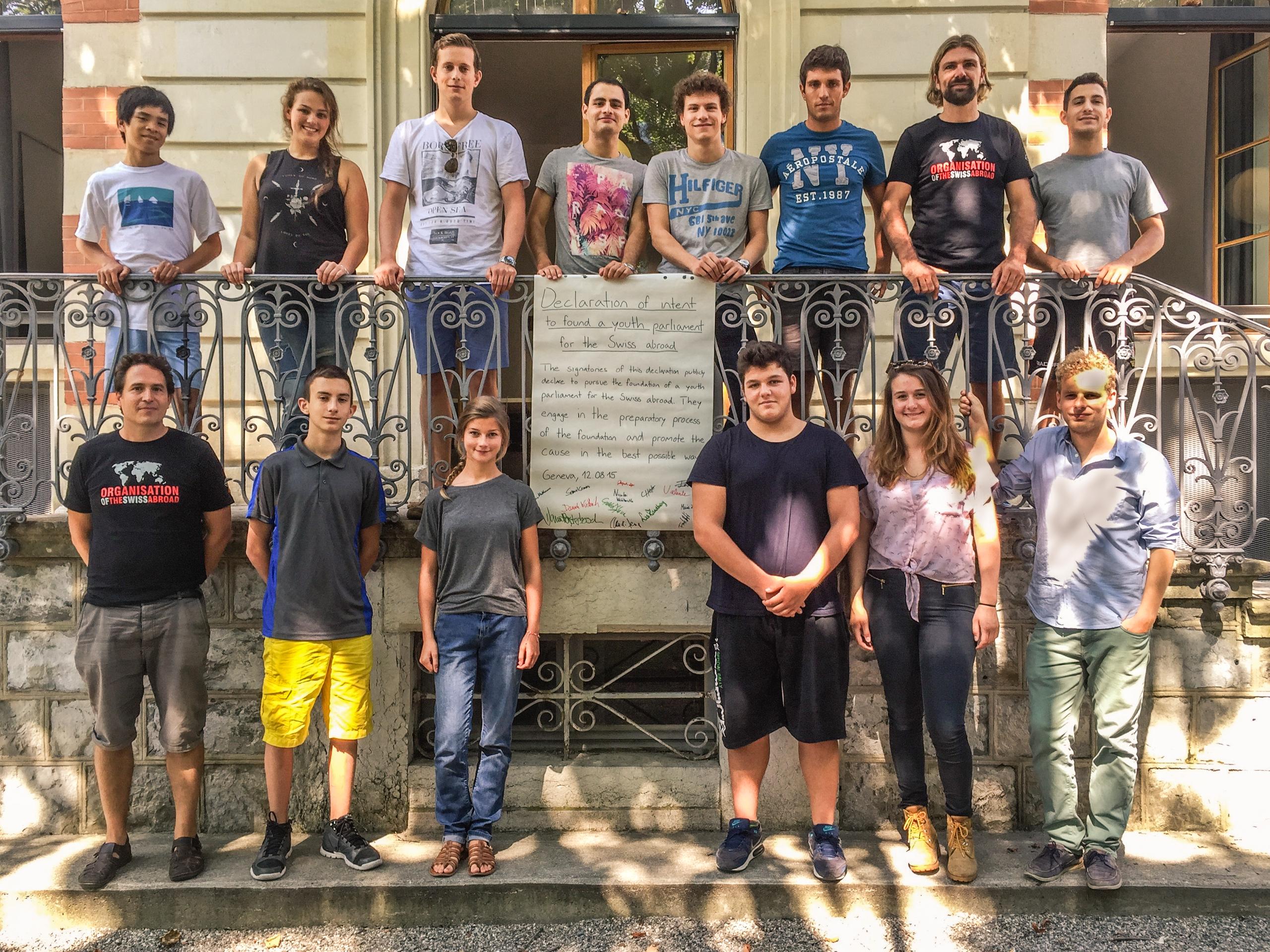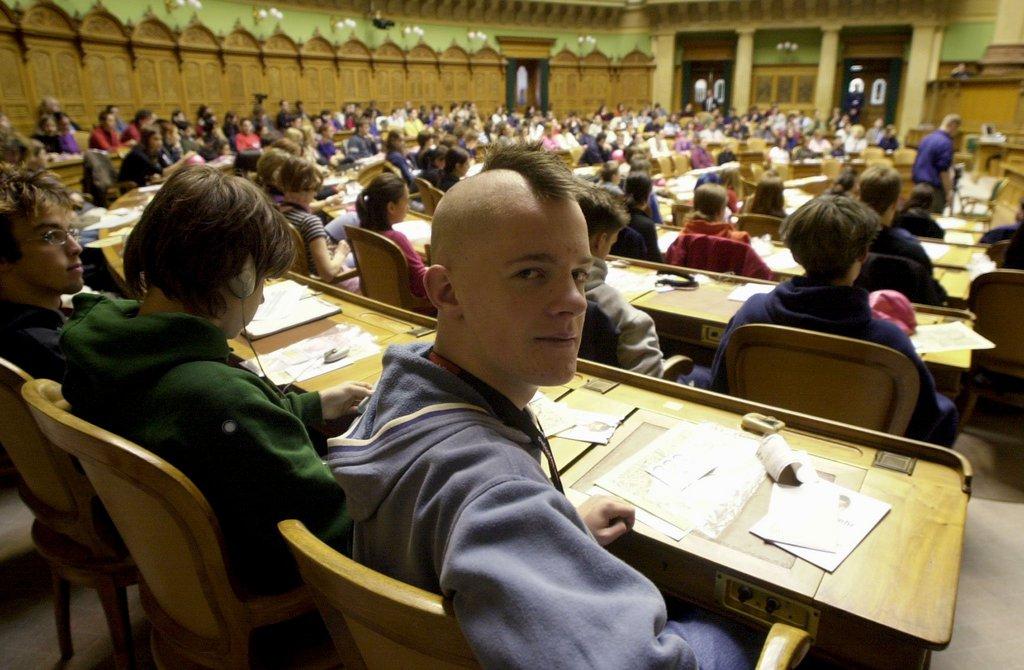‘We have to stand firm, using our democratic societies’

Governments should make an effort to reach out to the young generation which uses the internet and social media to play an active role in democracy, says Wanja Kaufmann.
The 19-year old language student from Sweden is a fresh voice of the Swiss Abroad community. swissinfo.ch presents a series a leading members of the newly-founded online youth parliament.
swissinfo.ch: What do you want to achieve as a member of the new youth parliament of the Swiss abroad – first of all in Switzerland, and second in your country of residence?

Wanja Kaufmann: I want to help other young Swiss people to learn more about Switzerland and about the country’s political and civil system. They should have the possibility to come in contact with other young Swiss abroad. I think that many youths, all over the world, know way too little about their democratic rights.
Young people who are Swiss citizens already have an amazing opportunity to learn about democracy, thanks to the Organisation of the Swiss Abroad External link(OSA). As a member of the youth parliament, I want to make sure that every young Swiss person can learn about and get to know their home country.
As a first step, I would like to start a sub-group of the youth parliament for young Swiss people in Sweden, where I live (and hopefully eventually expand it to also include several regional groups). These groups could work as discussion forums which learn about their home country together.
I also hope that these groups can get the opportunity to travel to Switzerland to learn about the country and its political system. I really look forward to start working with this.
swissinfo.ch: What does direct democracy look like in your country of residence? Are there options that you especially appreciate? And ones that you miss having?
W.K.: Sweden is truly a democratic country, but there is still a lot to do until democracy has reached the same level as in Switzerland. We’ve of course got democratic elections, but there really aren’t many referendums – about five of them since the beginning of the 20th century, I think.
Nowadays we are able to launch people’s initiatives, thanks to the last constitutional amendment – only on local and regional levels though. So in practice, Sweden is not a country with direct but with representative democracy.
I really hope that Sweden will improve to become more direct democratic.
Something that I really appreciate is the big role organisations and political parties play in Sweden – I really think that that’s something that is encouraging the democratic social climate.
swissinfo.ch: In most countries young people vote less often than people of other age groups. Isn’t direct democracy a prime agent for young people to communicate their political needs and ideas?
W.K.: I think it is, in one way. On the other hand, I think that, nowadays, a lot of young people don’t feel they need to vote to reach a political goal.
Many youths have got the internet as an important platform to share and develop their ideas, and they get the attention of politicians and the media even if they don’t use statutory tools like people’s initiatives or voting.
I don’t think that this is necessarily a bad thing – the governments all over the world just have to accept and understand these ways of engagement and start to work with it.
Platform for young Swiss expats
The youth parliament of the Swiss Abroad was set up only a few months ago and is still in its infancy.
It’s primarily an online platform which brings together the about 350 members across the world for debates and other exchanges of ideas via social media and skype.
swissinfo.ch interviewed 11 young Swiss expatriates who are leading members of the youth parliament. Our questions focus on issues of participatory citizenship in their countries of residence and in Switzerland.
swissinfo.ch: Since the attacks in Paris, Europe has been obsessed with the terrorism of the Islamic State group. Is the fight against Islamic extremists, which has led to the restriction of individual freedoms, a danger for democracies?
W.K.: I don’t think that IS affects the democracies directly. I think that the biggest problem is how Islam is perceived by society.
Now that the terrorism has entered the western world, I’ve got the feeling that many people, but also governments, have started to see Islam as evil. And I think that this is something we should really worry about.
If big parts of our societies are being seen as potential terrorists and therefore can’t take advantage of democratic rights in the same way as others, then we have a democratic problem.
Even if our governments focus on bombing terrorist groups, we have to stand firm, using and keeping up our democratic societies – because we are the ones who form them.

In compliance with the JTI standards
More: SWI swissinfo.ch certified by the Journalism Trust Initiative












You can find an overview of ongoing debates with our journalists here . Please join us!
If you want to start a conversation about a topic raised in this article or want to report factual errors, email us at english@swissinfo.ch.